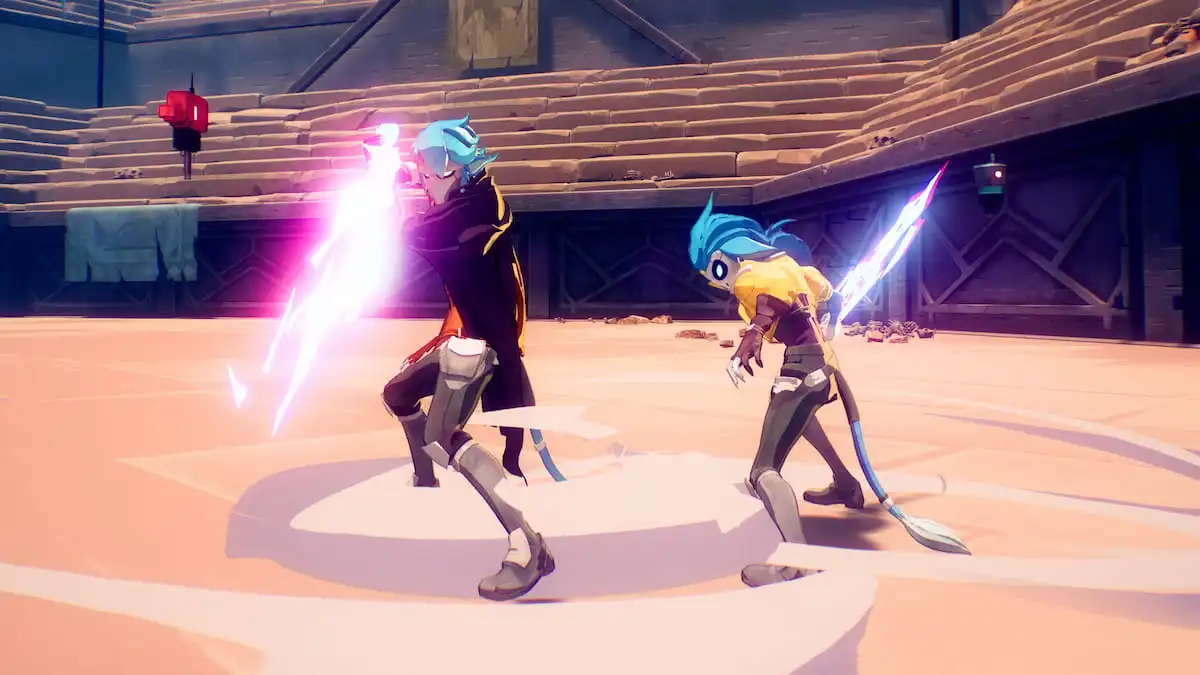Robert “Nukes” Larsson has gotten used to hate. “Fucking retard.” “Shit human being” “Fucking joke.” He encounters this type of language frequently, whenever he pokes his head above the sand and ventures into Reddit discussions. Occasionally the language is less vitriolic, but equally hurtful. “You are nothing. Nothing without the players. And now nothing without the community.”
And then the one that really speaks to what’s happened to Larsson’s reputation in the days since the incident: “Do your sponsors know you’re turning the DreamLeague brand into a joke?”
DreamLeague is one of the biggest leagues in the world for Dota 2, one of the pillars of modern esports. Hundreds of thousands of people watch its live events, which at their culmination pit some of the best teams in the world against one another. Larsson, 24, is the organization’s head admin, a veteran of more than seven years in the industry and a die-hard fan of Dota 2 and esports.
But on Oct. 16, the manager of one of the DreamLeague teams took to the Reddit Dota 2 forum—easily the biggest and most influential on the Internet—and laid into both Larsson and DreamLeague. The problems he laid out were deeply embarrassing for an organization that has long prided itself on professionalism and a higher quality product than many of its competitors: a botched schedule, poor communication, and arbitrary rule changes.
Larsson’s reputation immediately plummeted. But he says the story, as people have heard it, is incomplete. And now he wants to tell his side.
DreamLeague, like any other tournament, begins with a thinning of the herd. More than 100 teams, sometimes more, file into a massive bracket that separates the contenders from the pretenders. These brackets feed into a regional pool play system that in turn feeds into a round-robin league that determines seeding for the finals. Both the pool play and league play, with their hundreds of games, are broadcast live, backed by seasoned commentators and DreamHack’s industry-standard production.
DreamLeague’s 2014 campaign began the same as any other, according to Larsson—except for the tighter schedule. “DreamLeague was announced extremely late,” he admits. The league announced its schedule on Oct. 5, with Eastern European qualifiers set to begin just a day later. The other region, Western Europe, would begin on Oct. 13.
That was an unusual schedule for any tournament, immediately raising the hackles of Brian Chapman, manager for the Europe-based Team Tinker.
“In general, we receive a one to two month heads up as to when matches are being played,” Chapman told the Daily Dot. “A detailed, day-by-day schedule is usually completed a full month in advance.”
This would begin a frustrating few weeks for Chapman, who ultimately unleashed his frustrations in that excoriating Reddit comment, which laid out in precise detail his problems with how things were handled.
According to Chapman, the schedule was the start. Three matches per day and only a week’s notice meant little time to reschedule prior obligations while committing his players to lengthy days of competition. That’s an especially tall order in professional Dota, with its notoriously crowded and exhausting competition schedule. Between finagling his own calendar and forcing organizers of other tournaments to revise their schedules in turn, DreamLeague’s demands, he wrote, were simply too much.
Then DreamLeague pushed the Western European qualifier a day later, fearing it would conflict with the live portion of the event—a change Chapman said was poorly communicated and made the schedule even more difficult to tolerate.
In fact, the schedule had changed so much Team Tinker’s worst fear came true: One of its players was going to have to miss a game. This started the strangest part of the ordeal, with a series of rulings and reversals, ultimately culminating in the mystifying decision that forced Tinker and its opponents to play with an equal number of substitutes.
Larsson admits there were problems. The schedule had little room for delay. Teams had to play three matches in a day, or “as much as possible before midnight,” over the three days of their respective qualifier. But “we never forced anyone to play on after midnight,” he says. (One team, Team Secret, played into the early hours of the morning, but at their own behest.)
But he stands by the scheduling decisions.
“The qualifier ran quite smooth, even due to the tight schedule,” he said. “From my experience, open qualifiers can go really, really fast. And to have less than three rounds the first day could very well lead to teams having to wait a lot more and delaying the tournament even more.”
Larsson felt that DreamLeague was completely reasonable about its admittedly crowded schedule.
“We were in no way impossible to cooperate with and did reschedule a lot,” he says. “From 55 confirmed teams, we had less than 5 complaints [in the Eastern Europe qualifier].”
DreamLeague’s sudden change in schedule wasn’t as last-minute as Chapman’s statement suggested, Larsson says. Over the five days preceding the original qualifier start date, updates were published via the official tournament bracket, its website, a Skype group for team managers, and an email notification system for registered tournament participants.
Even despite Chapman’s late discovery of the revised qualifier dates, Larsson says that his staff worked hard to alleviate Tinker’s scheduling woes. Between two postponements—one prearranged and one on the the 14th—Larsson says that his team modified the schedule more for Team Tinker than for any other qualifier participant.
This gesture of goodwill, however, would lead to Chapman’s biggest gripe: a late-night negotiation that ultimately catalyzed his decision to go public with his complaints.
Due to the delays, Tinker’s schedule included five matches the day of the 15th. The team played through three of their scheduled matches before Chapman informed Larsson that Max “Qojqva” Broecker was leaving for school-related reasons. With two matches left, Tinker was done playing, bending an already taut schedule even further for a side that had already received several concessions.
By Chapman’s account, however, the tournament was already behind schedule. “Fact of the matter is that at the time that (Broecker) went to sleep, we were a full two rounds in front of the top side of the bracket,” Chapman said.
From either perspective, the qualifier was falling behind. With sponsors to please and a live production already breathing down their necks, the pressure was mounting. In an effort to right the ship, Larsson proposed that, as is common in the crowded world of competitive Dota, Tinker play with a temporary substitute or “stand-in”.
Chapman, however, refused. Despite a tweet from Tinker member Sam “Bulba” Sosale confirming that the team had a stand-in ready, Skype logs that Larsson showed to the Daily Dot indicate that Tinker’s manager would not negotiate on the matter.
Tinker’s opponents, Aftershock, had their own objections with postponing the match. With two of its members traveling the following day, postponement virtually guaranteed that the underdogs would play at an even greater disadvantage. In an effort to avoid this situation, Larsson informed Chapman that his team would play with a substitute or receive a forfeit loss.
By now, the hour was drawing late. Chapman’s team had two options: play with a stand-in (which Chapman refused) or take the loss and play the next day. Either way, Tinker would not play any more matches that day. Not wanting to waste the players’ precious time, Larsson encouraged the manager to send his players to bed.
“To us this meant basically what is written, he’s moving the game to tomorrow, we were free to go to bed,” Chapman told the Daily Dot, “which also implied that, if they were releasing us to go to bed, we were obviously safe from any disqualification.” Skype logs indicate, however, that Larsson made no suggestion that Tinker would avoid their scheduled match without consequence.
As he went to bed, Larsson felt confident in his team’s decision. But while he slept, Sosale began to write the public narrative:
“Nonetheless, you won’t play today.You can tell your players to go to bed if they want to.”dreamleague admin and then he gives a FF loss
— Sam (@BuLbaDotA) October 15, 2014
The tweet hit the front page of Reddit. Recognizing the importance of a response, Larsson promised the community a full explanation the following day. Larsson went to bed, exhausted from a crowded schedule.
But while Larsson slept, Chapman vented his pent-up frustration, albeit with some creative license. In his statement, Chapman presented his outright refusal to play with a stand-in as “reluctance,” which made it appear as if he was flexible in the discussion, whereas Larsson’s Skype logs indicate otherwise. Furthermore, Chapman naturally ran with his interpretation of Larsson’s suggestion that Tinker players “head to bed,” painting a picture of an administrator with severe communication issues.
At noon the next day, Larsson received a call from his boss, Christian “Hellspawn” Lord. During the ensuing hours, Larsson’s decision had been reversed. Tinker would no longer receive a forfeit loss. Instead, both teams would play with an equal number of stand-ins in order to level the playing field; a decision born of Chapman’s unwillingness to play at a disadvantage, thus forcing Aftershock to play at a disadvantage.
But Chapman’s story made the reasonable—if unconventional—decision seem patently ridiculous. By claiming that Tinker were flexible in their negotiations, Chapman’s side became a victim of poor administration. By stoking criticism that both teams could use entirely different lineups under Lord’s ruling, Chapman ignored the established rule that no team can field more than two substitutes. This missing detail made DreamLeague’s administrators look completely incompetent.
Meanwhile, Larsson’s request to present his side of the story was batted down by Lord. Lord promised Larsson that a statement would be issued via an interview with community website JoinDota.
Unfortunately for Larsson, the interview with JoinDota did nothing to resolve the conflict. Despite Lord’s efforts to lay out the events clearly, the piece did not convince an angry community, most of whom already saw DreamLeague as an organization working to bury an embarrassing controversy.
In the following weeks, Larsson soldiered onward, all too aware of his newfound role as a villain. His reputation was damaged that, when he disappeared from social media for a seven day vacation, it was widely believed that he’d instead been fired.
Larsson, with the help of his administrative team, pinch-hitter Bruno Carlucci, and the team of the GD Studio, presented the latter stages of the tournament with little conflict or controversy. In the end, their efforts actually helped repair DreamLeague’s badly damaged reputation through top-quality production and luxe treatment for players.
But Larsson’s reputation remained tarnished. To this day, he still receives criticism for the handling of DreamLeague’s hurried qualifier. Even Chapman, who originally decried DreamLeague’s schedule as unreasonable, has come to recognize that Larsson was, as he puts it,“dealt a losing hand.”






Published: Dec 30, 2014 02:12 pm